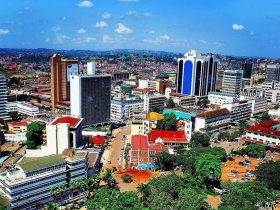
Angola Passenger Transport Companies
Angola, a country located in Southern Africa, has a developing transport sector that plays a crucial role in connecting its vast and diverse regions. The passenger transport industry in Angola includes road, rail, air, and limited water transport services. While challenges like infrastructure limitations and vehicle maintenance persist, several passenger transport companies continue to support mobility in urban and rural areas. Here is an overview of key players and the general state of passenger transport in Angola.
1. TURA (Transporte Urbano de Luanda):
TURA is a prominent public bus company operating in Luanda, the capital city of Angola. It is one of the main providers of affordable mass transportation services. TURA buses are known for their scheduled routes and aim to reduce urban congestion while offering reliable services to commuters. The company is government-owned and has received support to expand its fleet and service capacity in recent years.
2. Macon Transportes:
Macon is one of Angola’s leading private passenger transport companies. It operates intercity and urban transport services across major cities such as Luanda, Benguela, Lubango, Huambo, and others. Macon buses are recognized for their comfort, punctuality, and extensive route network. They serve both long-distance and local travelers, making the company a vital part of Angola’s transport ecosystem.
3. AngoReal Transportes:
AngoReal Transportes offers executive and urban transport services, including minibus taxis and chartered trips for individuals and companies. The company focuses on quality service and often caters to corporate clients and airport transfers. Though smaller than TURA and Macon, AngoReal provides a more personalized transport experience.
4. Candando Express:
Candando Express, a relatively newer entrant in the market, provides shuttle and scheduled services in Luanda and surrounding areas. With a focus on safety and reliability, the company is gaining attention among commuters looking for alternatives to traditional taxis or overcrowded buses.
5. Rail Transport – Caminhos de Ferro de Luanda (CFL):
While primarily a freight operator, CFL also offers limited passenger services between Luanda and interior regions. The railway lines are undergoing rehabilitation to improve frequency and safety, and there is growing potential for more extensive passenger rail services in the future.
6. Informal Transport Sector (Candongueiros):
In addition to formal companies, Angola’s cities rely heavily on informal passenger vans called candongueiros. These are minibus taxis operated by independent drivers, widely used due to their availability and affordability. However, they often lack regulation, safety standards, and predictable schedules.
Challenges and Opportunities:
The passenger transport sector in Angola faces several challenges including poor road conditions in rural areas, inconsistent vehicle maintenance, and a need for better infrastructure. However, government initiatives to invest in roads and urban transport networks, especially in Luanda, show promise. The growing middle class and urban population present opportunities for transport companies to innovate and expand.
In conclusion, Angola’s passenger transport industry is a mix of public, private, and informal operators. Companies like TURA and Macon lead in providing structured and reliable services, while others contribute to meeting the growing mobility needs of the population. With ongoing investment and modernization, the future of passenger transport in Angola looks increasingly dynamic and essential for national development.



Leave a Reply